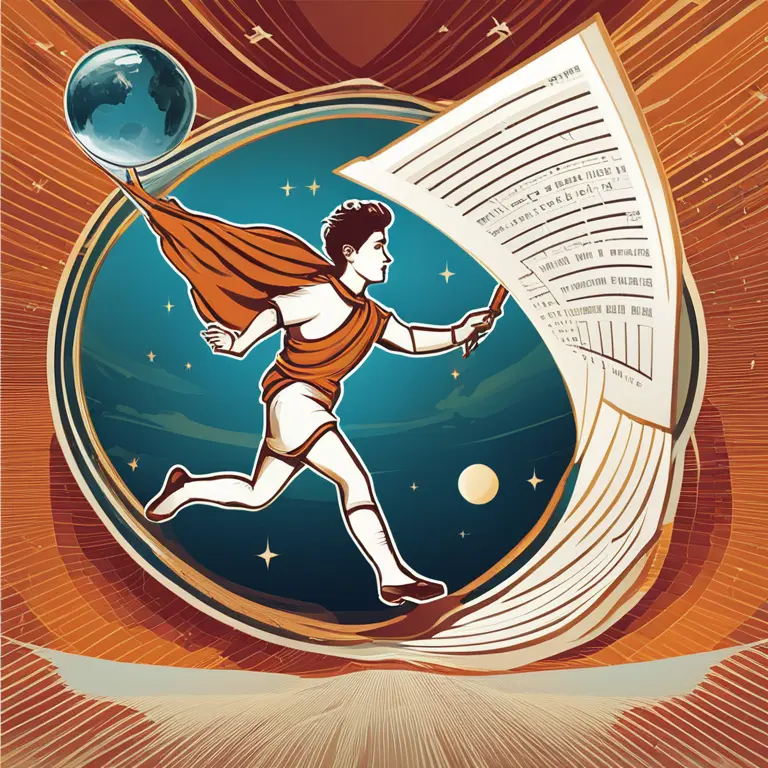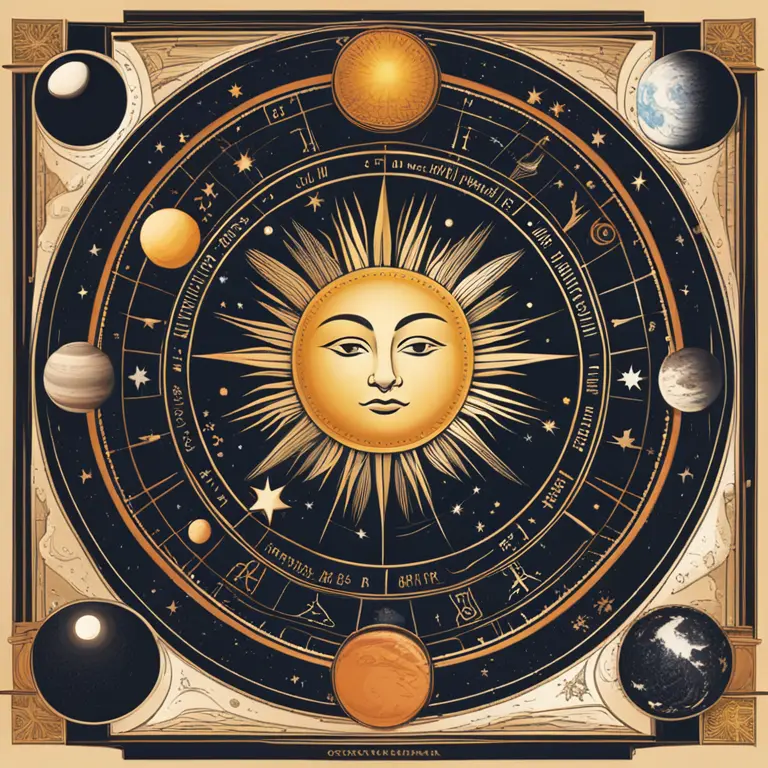
The Cosmic Dance: Meanings of Astrology's Planets
Delve into the roles of celestial bodies in astrology and discover how each planet influences our lives and personalities according to the ancient art of astrology.
article by Priya Deshmukh
Introduction to Astrological Planets
Astrology is an ancient practice that looks to the positions of celestial bodies to offer insights into human affairs and natural phenomena. At its core, astrology considers the movements and positions of planets as key influences on our personal characteristics, emotions, and life events. Each planet, including the Sun and Moon in the astrological context, plays a unique role in shaping our destiny. As we journey through the meanings of each significant celestial player, it is important to view them as components of a larger cosmic mechanism that reflects the nuanced tapestry of human existence.

Sun: The Core Self
In astrology, the Sun is more than a star—it's the symbol of our core identity, ego, and the will to live. Representing the vital force that drives us, the Sun's position by zodiac sign on the day of our birth is what most people know as their 'star sign'. It influences our self-expression, sense of purpose, and the innate strengths we bring to the world. The Sun's radiant energy is vital for personal growth and fulfillment, as it illuminates our path toward self-realization.

Moon: Emotional Compass
The Moon in astrology is as crucial as the Sun and reflects our internal landscape: our emotions, subconscious, and inner needs. It represents the nurturing side of our nature and our instinctive reactions, as well as our capacity for care and empathy. The Moon's sign at the time of our birth colors how we express and manage our feelings, our sense of security, and our habits. It's the celestial body that governs our private, sensitive selves—the part of us that we often shield from the public eye.

Mercury: The Messenger
Mercury is the swift-moving planet of communication, intellect, and exchange. In astrology, Mercury governs how we think, learn, and articulate our thoughts. It's associated with logic, reasoning, and our ability to interpret and convey information. When Mercury goes retrograde, a periodic apparent reversal of its orbit, it is said to influence mishaps in these areas, but also presents times for reflection and re-evaluation. Understanding Mercury's influence helps us navigate how we connect and interact within our social environments.
Venus: The Planet of Love
Venus is the planet of affection, beauty, and value, ruling over our romantic tendencies, attractions, and the pleasure we take in life. Its position in the zodiac informs our approach to love, our aesthetic preferences, and what we find pleasurable. It also relates to wealth, as it influences what we consider valuable and financially worthwhile. In personal relationships, Venus shapes how we give and receive love and kindness, helping to define our intimate connections and desires.
Mars: The Warrior Spirit
Mars is astrology's fiery combatant, influencing our drive, ambitions, and basic animal instincts. It is the planet of action, associated with aggression, competition, and physical energy. Mars guides our assertiveness, sexual energy, and the raw determination needed to overcome obstacles. How we approach challenges and assert ourselves in the face of conflict is directly related to Mars's position in our natal chart. It motivates us to act and pursue our goals with courage and fervor.
Jupiter: The Expansive Giant
Jupiter is the largest planet in our solar system and its astrological influence is equally expansive. This benefic planet is the symbol of growth, luck, and abundance, encompassing wisdom, higher learning, and ethical standards. Where Jupiter resides in a chart, it shows where we find joy and prosperity, as well as where we may experience life's blessings with greater ease. By understanding Jupiter's benevolent influence, we can recognize the path to personal development, optimism, and philosophical enlightenment.
Saturn: Master of Time
Saturn, the taskmaster of the zodiac, represents discipline, structure, and responsibility. Its presence in the natal chart highlights areas where we face challenges, limit ourselves, and build resilience. Saturn's strict hand guides us through life's toughest lessons, teaching us about endurance, diligence, and the rewards of hard work. Despite its reputation for severity, Saturn's ultimate goal is to mold us into more mature, organized, and self-reliant individuals.
Uranus, Neptune, & Pluto: Transpersonal Forces
The outer planets—Uranus, Neptune, and Pluto—are considered transpersonal, largely influencing generational trends and far-reaching transformations. Uranus is synonymous with innovation and rebellion, shaking up the status quo with its erratic brilliance. Neptune dissolves boundaries, encompassing dreams, illusions, and spiritual awakening. Pluto is the planet of transformation, associated with profound change, power, and rebirth. These planets move slowly, thus shaping the collective energies and marking significant epochs in human history.
Published: 2/13/2024
Modified: 2/13/2024
More predictions
Come back here soon to learn more about yourself and your future


The Moon Tarot Card: Insights and Meanings
Delve into the profound symbolism and astrological implications of the Moon Tarot card for guidance and personal reflection.


The Tarot's Queen of Pentacles: A Guide to Practical Wisdom
Delve into the significance of the Tarot's Queen of Pentacles and discover how this card symbolizes nurturing abundance and material mastery in readings.


The Tarot Card Deck: A Gateway to Mystical Insights
Discover the tarot deck's rich symbolism and its role in personal growth and foresight. An insightful guide to the power of tarot cards.